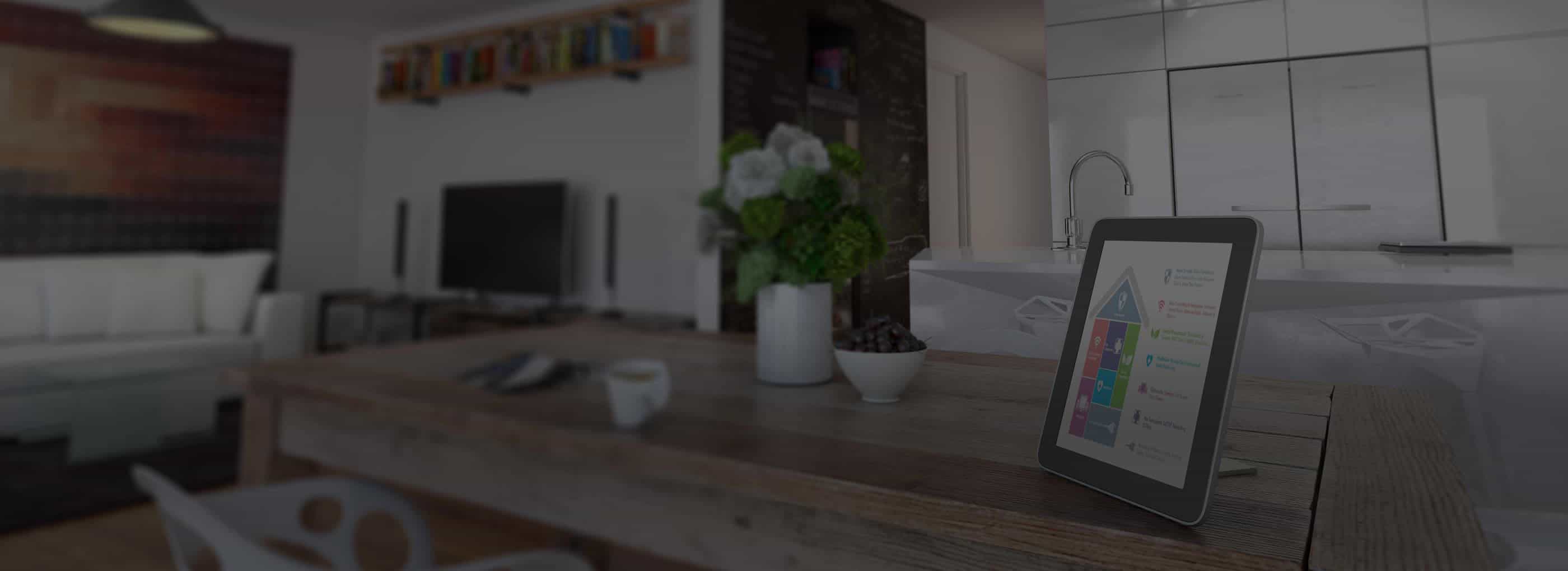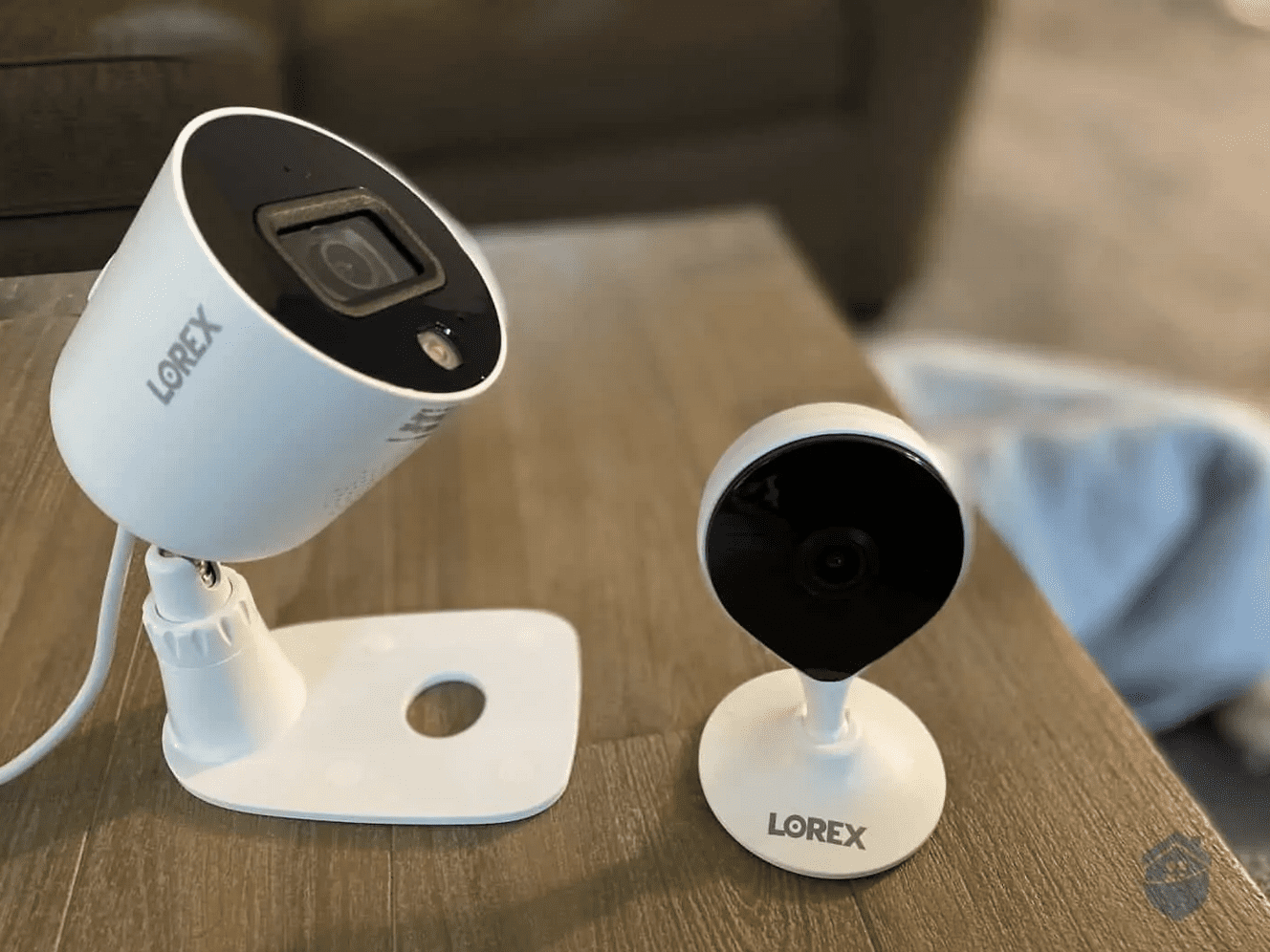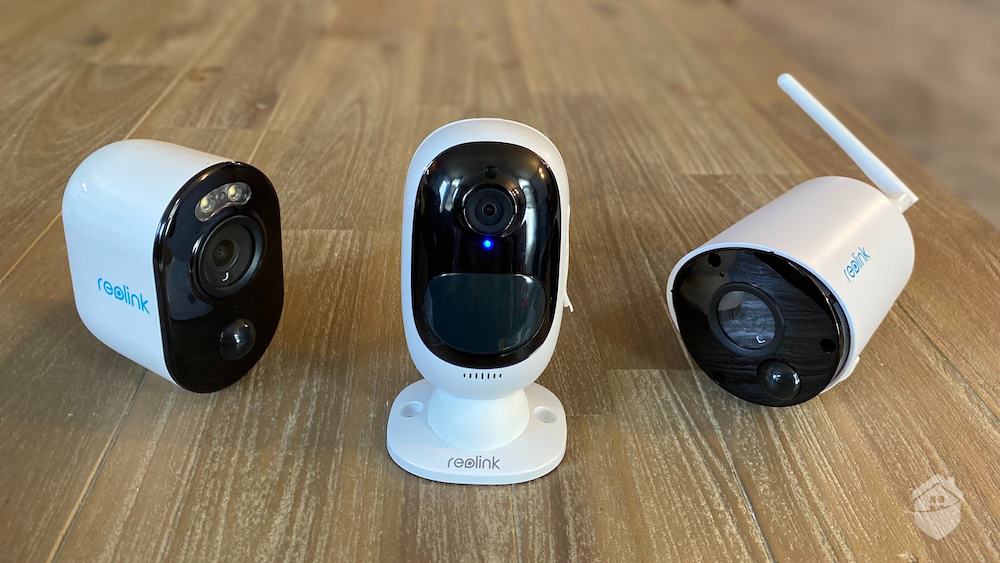Editor’s Note: Camera laws can be tricky. For straightforward protection, we recommend getting a whole-home security system. Brands like ADT and SimpliSafe are always a safe bet.

Our dog captured on the Arlo Pro 3
Imagine you’ve just finished installing a security camera in your guest bedroom. This is where your dog stays when you’re out of the house and you want to keep an eye on him. You went with a Lorex home security camera, one of the cameras we rated as most user-friendly, and you’re feeling better already. Setting it up took only minutes, and you tucked it away, out of sight, so that the room still looks clean and tidy.
Then you look out the window and notice your neighbor’s house has an outdoor security camera. His camera faces the side of your house, and from what you can tell, his camera can see directly into your yard, even as far back as your swing set where your kids play every day after school.
One of you could be on your way to breaking privacy laws in the U.S. If you’re surprised to hear it’s you with the hidden bedroom cam, you’ll understand why security camera laws can look murky here.
We don’t have federal laws that explicitly govern how we can use security cameras in our lives, but we do have other laws that give us guidelines. Let’s take a look at those and see why the rule-breaker in this scenario isn’t so clear.
FYI: More than half of the people we surveyed in the U.S. said it’s reasonable to trade privacy for safety, but few of them said they feel safer due to modern surveillance technology such as security cameras.
The Expectation of Privacy
The scenario above shows how a legal test called “expectation of privacy” works in the U.S. It has a huge legal influence on security cameras.
“Expectation of privacy” relates to privacy protections in the Fourth Amendment of the U.S. Constitution and basically says that privacy needs to be upheld in places where people can expect a high level of privacy.
This means bedrooms, bathrooms, hotel rooms, public restrooms, locker rooms, and even certain spaces in prisons cannot have security cameras and people cannot be recorded. It’s interesting to note one’s car does not qualify as a private place so, while dash cams are fine, this doesn’t mean you can safely record people who ride in your car without their consent (more on this later).
FYI: A lot of illegal activity happens in cars so while you may not want to record your own interactions in your own car for your own security, law enforcement and other institutions may retain the right and ability to record you for their purposes.
>> Read More: Can Security Cameras See Inside Cars?
Applying these expectations of privacy to the scenario above, a bedroom camera breaks these rules more so than a neighbor’s security camera pointing at your backyard, given you have a guest who stays with you and you forget (or neglect) to tell them about the camera in their room. Remember, a bedroom has a high expectation of privacy.
Is your neighbor’s camera pointed into your home? That’s a different scenario and grounds for legal action because the interior of a person’s home has more of an expectation of privacy than a person’s backyard.
>> Read About: Do You Have to Tell Guests About Hidden Cameras in Your Home?”
Think of these expectations on a scale:
- The front yard of a home has fewer expectations of privacy than a backyard.
- A backyard has fewer expectations than general and common areas inside a person’s home.
- General and common areas in the home have fewer expectations than bedrooms and bathrooms.
- Bedrooms and bathrooms have the highest levels of privacy.
Vacation and Short-Term Rentals
Scenarios like these, where occupants treated living rooms in rental spaces as bedrooms and owners had installed security cameras, have affected vacation rental policies and been the basis of lawsuits.
And these are separate from the lawsuits where occupants discovered hidden cameras in their short-term rental bedrooms and bathrooms.
Airbnb permits monitoring devices only in public and common spaces within rentals as long as they are clearly identified and disclosed ahead of reservations, according to its policy on using cameras and recording devices.
However, if an occupant uses a monitored common area as a sleeping area, then it’s a problem and can have legal ramifications.
Did You Know? Forty-two percent of potential vacation renters said they’d be less likely to book a property with security cameras, and 6 percent have discovered hidden cameras in their short-term rentals.
>> Read More: Vacation Surveillance: What Travelers Think About Airbnb Security Cameras
VRBO, another major vacation rental company, doesn’t allow monitoring devices inside a rental at all. Placing security cameras outside a rental is fine. It also has an interesting note on noise monitoring devices, which relates to a law we’ll examine next.
VRBO rentals can have noise monitoring devices inside the home, but only if they record noise levels and not private conversations. Owners must also notify renters they’re being monitored ahead of time.
Recording private conversations, whether they’re captured on security cameras or recording devices, falls under wiretapping laws and requires consent. VRBO doesn’t want to mess with wiretapping laws, thus its policy.
Before we go further into wiretapping, know that some states explicitly prohibit security cameras in vacation rentals and some states regulate security cameras in general, not just for vacation rentals, so be sure to check with your local laws to make sure you’re in compliance.
You may also fall under a homeowners association’s (HOA) rules and regulations concerning security cameras.
Did You Know? Some of the first HOAs were established in the early 1900s in Los Angeles County, and many of these private contracts outlined racist and religious discrimination practices to control who was able to buy into housing developments. Luckily, laws have changed how HOAs work.
Wiretapping Laws and Liability
If your security camera records voices and conversations, not just images, you may be held liable for wiretapping under federal law in the U.S.
In most cases, federal law prohibits the recorded capture of private conversations unless consent is given. These laws most often relate to conversations that happen over the phone and internet but can, in certain cases, relate to security cameras because they’re seen as electronic communication devices.
And this is where specific state laws affect the legality of recording conversations. Some states require only one party to consent to the recording of the conversation, so if you yourself consent, you’re most likely legally safe. But you must also be present on the recording.
If the conversation happens between two or more people and you’re not part of it, one person needs to have consented to the recording (usually in writing).
At the time of this article, these states require two-party consent for recorded conversations:
- California
- Connecticut
- Florida
- Illinois
- Maryland
- Massachusetts
- Nevada
- New Hampshire
- Pennsylvania
- Washington
So, if your security camera picks up a conversation between you and a delivery driver and you live in a two-party consent state, you may have broken the law unless the driver consented to being recorded.
Consent laws change, so don’t take this article as definitive legal advice. If an individual state isn’t listed, it means its laws don’t specify exactly where it stands on two-party consent.
You also need to consider that these legal guidelines most often relate to crime deterrence and investigations. You can’t use recorded conversations for blackmail, but if you caught someone planning or discussing a crime, most states may give you the legal thumbs up to use that footage for crime-prevention purposes.
FYI: If you live in a one-party-consent state and you record your conversation with Snoop Dogg at a party he just happened to attend, you definitely can’t use the footage for commercial gain without Snoop’s consent.
Can Law Enforcement Request Your Footage?
Law enforcement can ask for your recorded video footage, and if you consent to a search, they do not need a warrant to get it.
If they do have a warrant and think you may have evidence to use against someone, even yourself, they can search any device it’s on, especially if they’re worried it might be deleted later.
And because many security cameras store footage in the cloud, law enforcement will often bypass the owner and go right to the source.
So, installing security cameras and recording footage, especially conversations, can come with a lot of responsibility and privacy concerns — not just for you but for everyone that your camera captures. If you’d like suggestions on where to place security cameras, we can help you out.
Did You Know? Way back in 2001 during Super Bowl XXXV, law enforcement in Tampa, Florida, used facial recognition software with their security cameras and watched everyone who attended the event. They scanned, analyzed, and cross-referenced faces with a database of wanted criminals, ultimately identifying 19 people with outstanding warrants. They told people about this tactic only after the fact, and many in attendance weren’t happy.
Play It Safe and Smart
- Avoid placing security cameras where there is a high expectation of privacy. That means no bedroom or bathroom surveillance (especially bathroom).
- Consent goes a long way. If you have security cameras in common areas inside your home, make sure everyone who enters knows they’re being recorded. This goes double if you’re recording conversations.
- If you own a vacation rental and want to install cameras, follow any policies outlined by the platform you use or the state in which it’s located.
- If you belong to a homeowners association, check to see if it has guidelines on security cameras.
- If you find yourself in a questionable scenario involving a security camera, either from having recorded something or having been recorded, consult an attorney in your state for specific legal advice.
Navigating the legal landscape of security cameras can make you feel dizzy at times, but as long as you look to uphold expectations of privacy, you can enjoy the benefits of cameras while avoiding most legal risks.
And a good balance of safety and privacy is a good goal to pursue.
>> Read More: Safety vs. Privacy





